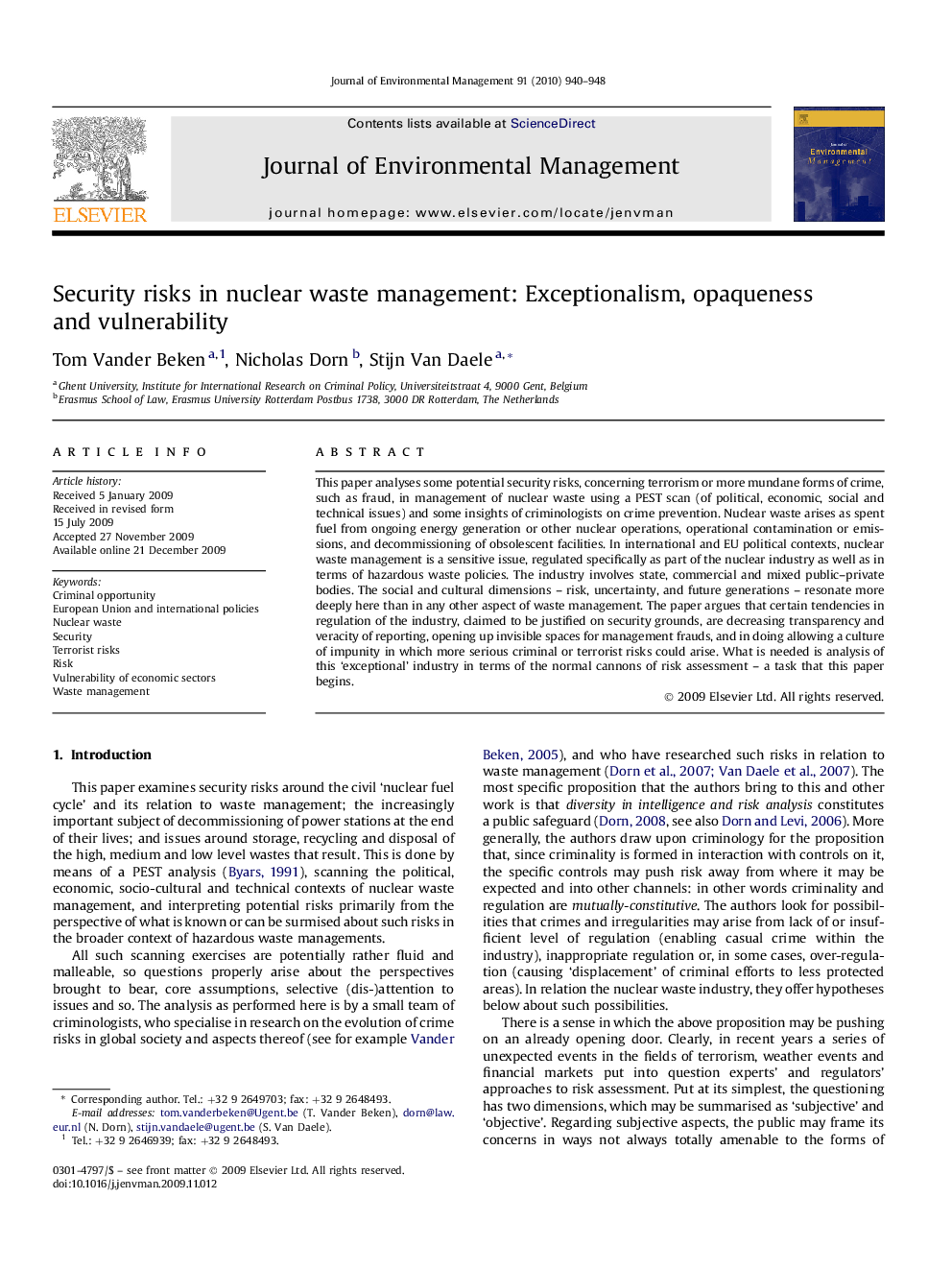| Article ID | Journal | Published Year | Pages | File Type |
|---|---|---|---|---|
| 1057686 | Journal of Environmental Management | 2010 | 9 Pages |
This paper analyses some potential security risks, concerning terrorism or more mundane forms of crime, such as fraud, in management of nuclear waste using a PEST scan (of political, economic, social and technical issues) and some insights of criminologists on crime prevention. Nuclear waste arises as spent fuel from ongoing energy generation or other nuclear operations, operational contamination or emissions, and decommissioning of obsolescent facilities. In international and EU political contexts, nuclear waste management is a sensitive issue, regulated specifically as part of the nuclear industry as well as in terms of hazardous waste policies. The industry involves state, commercial and mixed public–private bodies. The social and cultural dimensions – risk, uncertainty, and future generations – resonate more deeply here than in any other aspect of waste management. The paper argues that certain tendencies in regulation of the industry, claimed to be justified on security grounds, are decreasing transparency and veracity of reporting, opening up invisible spaces for management frauds, and in doing allowing a culture of impunity in which more serious criminal or terrorist risks could arise. What is needed is analysis of this ‘exceptional’ industry in terms of the normal cannons of risk assessment – a task that this paper begins.
